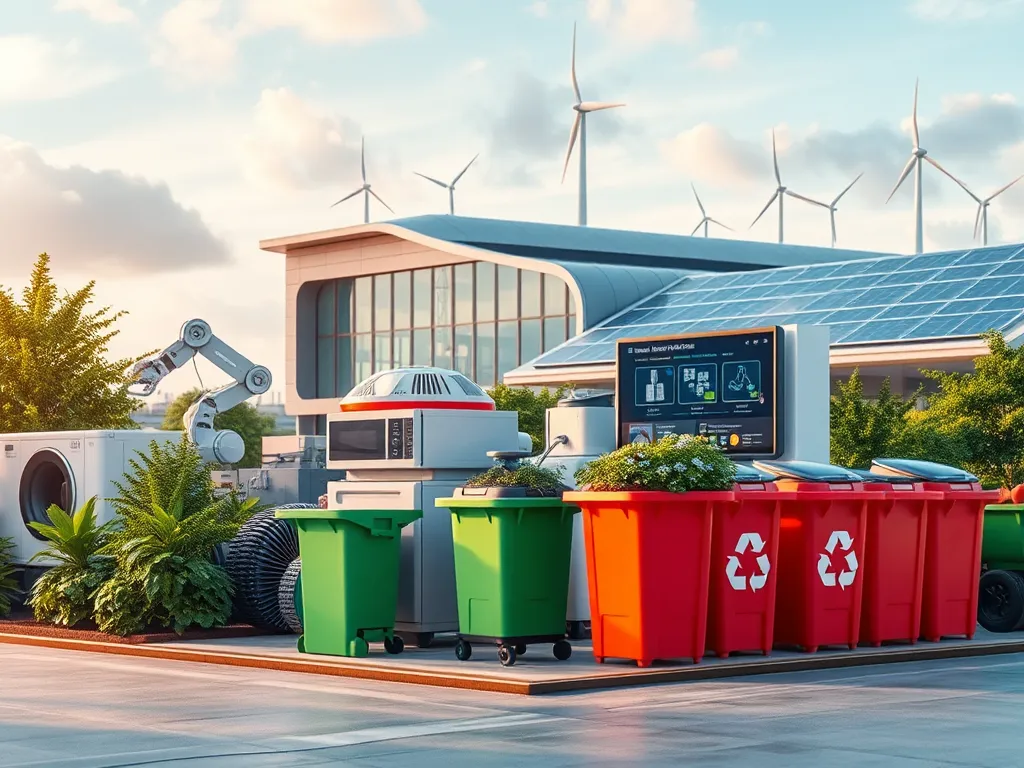Smart Disposal Solutions for Old Appliances

A Comprehensive Guide to Appliance Disposal
Appliance disposal is an essential process that not only helps in managing waste effectively but also ensures that our environment remains clean and safe. As households upgrade their appliances, it becomes necessary to dispose of old or broken items responsibly. Understanding the best practices for appliance disposal can lead to reduced landfill waste and promote recycling and recovery of valuable materials.
When it comes to appliance disposal, consumers often face confusion about how to properly dispose of their old devices. This guide covers everything from eco-friendly disposal methods to local regulations, allowing homeowners to make informed decisions about their appliance disposal efforts and contributing to a more sustainable future.
To effectively handle appliance disposal, it’s vital to consider various factors such as the type of appliance, local regulations, and eco-friendly practices. Consumers need to be aware of the potential consequences of improper disposal methods that may harm the environment and take steps to minimize their impact. Engaging in responsible appliance disposal is an important step in protecting our planet.
With the rise of e-waste concerns, appliance disposal has become a pressing issue. Many appliances contain hazardous materials that can leach into the ground if not disposed of correctly. By following proper disposal methods, individuals can help mitigate the environmental issues related to waste management. This article aims to provide comprehensive information on appliance disposal to help individuals make smarter choices for their older appliances.
Ultimately, appliance disposal is not just about getting rid of unwanted items; it reflects our commitment to sustainability and environmental responsibility. By educating ourselves on the correct ways to dispose of appliances, we can contribute to a healthier planet for future generations.
Eco-friendly Appliance Disposal
Benefits of recycling appliances include reduced landfill waste, conservation of natural resources, and significant energy savings. Recycling allows valuable materials from appliances, such as metals and plastics, to be repurposed for new products, thereby minimizing the need for virgin resources. Furthermore, recycling appliances helps in reducing greenhouse gas emissions associated with manufacturing new products.
To recycle major appliances, individuals can start by checking with local recycling centers that specialize in appliance recycling. Many municipalities offer drop-off services or scheduled pickups for larger items. Additionally, some retailers provide appliance take-back services when delivering new models. It is important to ensure that the recycling facility follows environmentally safe procedures for dismantling and recycling appliances.
By participating in Appliance recycling, individuals can contribute to environmental sustainability and reduce harmful waste.
Eco-friendly disposal tips for consumers include reducing the waste generated by appliances through proper maintenance, opting for repairs instead of replacements, and researching recycling programs in the community. Consumers can also organize appliance swap events, or participate in community clean-up programs focused on recycling or safely disposing of old appliances.
Local Disposal Regulations
Understanding local appliance disposal laws is crucial because regulations can vary significantly from place to place. Some regions have strict rules regarding the disposal of hazardous waste, including certain appliances like refrigerators and air conditioners. It is important to familiarize oneself with local regulations to avoid penalties and ensure compliance with environmental standards.
To find disposal facilities near you, individuals can use online resources like the Environmental Protection Agency (EPA) website or local government websites that provide information on recycling centers. Many local waste management services also have hotlines where residents can inquire about the nearest appliance disposal facilities and their specific procedures.
Permits required for appliance disposal can vary by location; some municipalities may require permits for the disposal of large appliances or hazardous materials. It's essential for residents to check with their local waste management authorities to understand any necessary permits, fees, or procedures associated with appliance disposal in their area.
Disposal Methods for Different Appliances
Best practices for disposing of refrigerators include contacting local recycling programs or retailers that offer take-back services. Before disposal, items such as food, drinks, and hazardous materials should be removed. Additionally, refrigerants contained in refrigerators must be handled by certified professionals to prevent environmental contamination.
How to safely dispose of microwaves involves checking for local recycling options, as many microwaves have electronic components that can be recycled. Individuals should avoid tossing microwaves in regular trash due to e-waste regulations and should seek out electronic recycling programs that accept microwaves.
Guidelines for washing machine disposal typically advise consumers to consult local recycling programs or appliance retailers for proper disposal methods. Donating functional washing machines is also an alternative to disposal. If disassembling the appliance, ensure that all hazardous parts are handled according to local regulations to avoid environmental harm.
Impact of Improper Disposal
Environmental hazards of appliance dumping include the release of toxic substances such as heavy metals, which can leach into soil and groundwater. Improper disposal can contribute to contamination and degradation of ecosystems, leading to long-term environmental damage that affects both wildlife and human health.
Impact of e-waste on landfills is significant, with a growing number of discarded appliances contributing to the e-waste crisis. Landfills filled with e-waste produce toxic pollutants as they break down, further exacerbating soil and water contamination issues.
Health risks associated with improper disposal of appliances can affect communities near dumping sites. Residents may face increased exposure to hazardous materials, leading to health complications such as respiratory issues and long-term illnesses related to toxic exposure.
Donation and Reuse Options
Where to donate old appliances often includes local charities, thrift stores, and community organizations that refurbish and redistribute usable appliances to families in need. Donors are encouraged to check that the appliances they are donating are in good working condition and meet the organization's guidelines.
Setting up a reuse program in your community can involve collaborating with local organizations to establish collection events for functional appliances, which can then be refurbished and provided to those in need. These programs promote sustainability and foster community spirit by allowing people to contribute positively.
Benefits of donating instead of disposing include extending the life of appliances, reducing waste in landfills, and providing useful items to families who may not be able to afford new appliances. Donating appliances fosters a culture of reusability and reinforces the importance of sustainable living.
